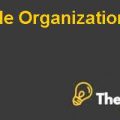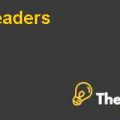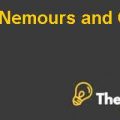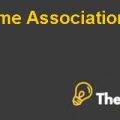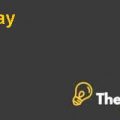UBS and Morgan Stanley: An Elaborate Insider Trading Scheme Case Study Solution
Who is hurt by insider trading? Is this a victimless crime?
Insider trading is the buying and selling of a security by the use of non-public information. Through accessing the knowledge, most of the investors are able to take advantage of the non-public information in which they buy and sell securities for maximizing their profits which are considered as unfair and illegal activity.
In this case, the ones who are being deeply impacted and hurt by the insider trading scheme are the companies such as UBS, Morgan Stanley, Bear Stearns, and Assent. Since the individuals who are engaged in the insider trading scheme are the representative of those company. If the SEC is able to discover the members of the insider trading scheme, not only would it damage the reputation of those individuals engaged in the activities but would also deeply hurt the reputation of the companies.
Why do you think so many individuals decided to join the scheme when they discovered rather than blow the whistle?
The desire for wealth, power, and fame or in other words greed, makes many people engage in unethical and illegal practices. Through the insider trading scheme, the investor is able to take effective decisions for their buying and selling of securities by using the information which is not disclosed to the public. This process is unfair and is considered as illegal depending upon the personal decides to use the information for their benefits.
Many of the individuals decided to join the scheme rather than whistle blowing, is because they desired to earn money without thinking about the consequences of the illegal practice. The whole act of the insider trading scheme had been started by Michael Guttenberg and Erik Franklin, followed by many other members which are Robert Babcock, David Tavdy, David Glass, Randi Collotta and ChristoperCollotta. These all members had only one desire and that is to make money, by not giving any regard to unethical and illegal practice.
UBS AND MORGAN STANLEY AN ELABORATE INSIDER TRADING SCHEME Harvard Case Solution & Analysis
What do you think UBS could have done to prevent Guttenberg’s passing along changes in analyst recommendation to others?
UBS analyst could have prevented from passing along the changes to prevent Guttenberg and others from exploiting the information through adopting of policies in which they could monitor the trading in stocks which undergo changes. The UBS should have focused on creating better working and ethical environment and also should have warned about the prohibitions of insider trading to all the UBS analyst which would have caused Guttenberg to think twice before starting and engaging in this activity.
What do you think about Randi Collotta’s behavior? Was her behavior more unethical because she was a lawyer in the compliance department?
Since Randi Collotta was the attorney in the compliance department, all the information regarding the mergers and acquisition were needed to be kept as private and not to be shared with other people. Randi Collotta behavior was more unethical since she used her position to share private information with her husband and other stock brokers and in exchange of the information, she would receive money which is considered as an illegal act......................
This is just a sample partial work. Please place the order on the website to get your own originally done case solution.


